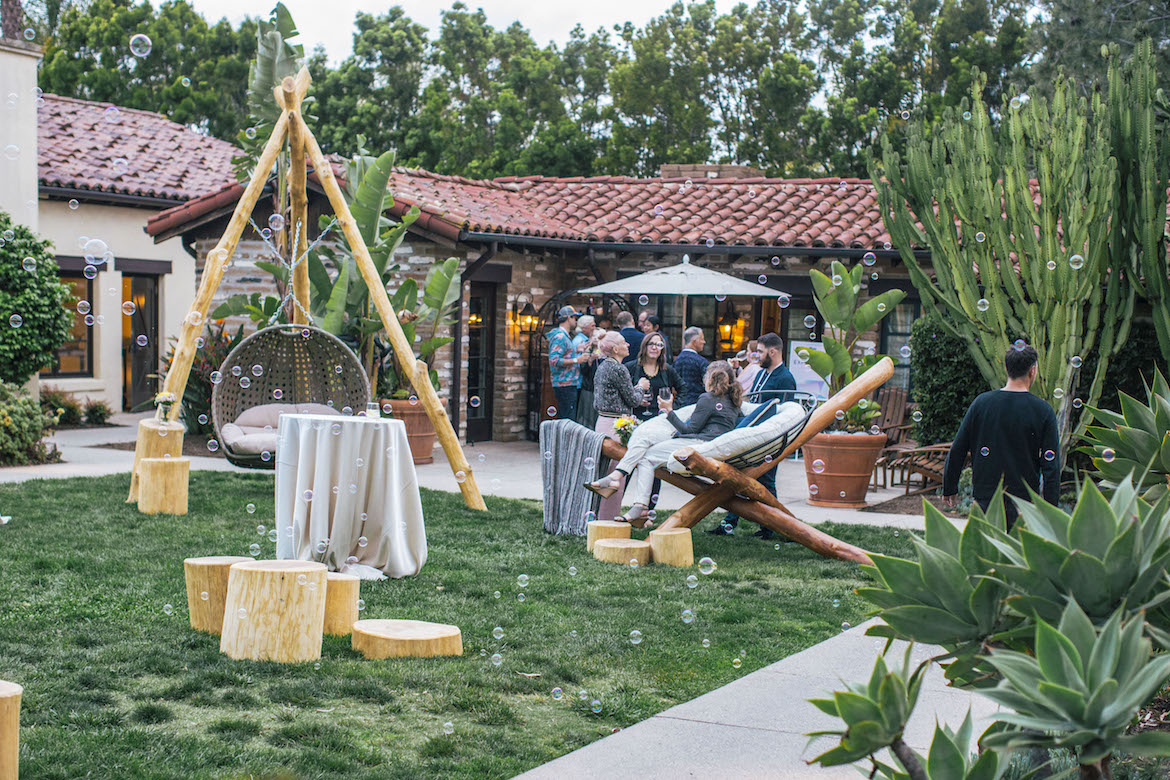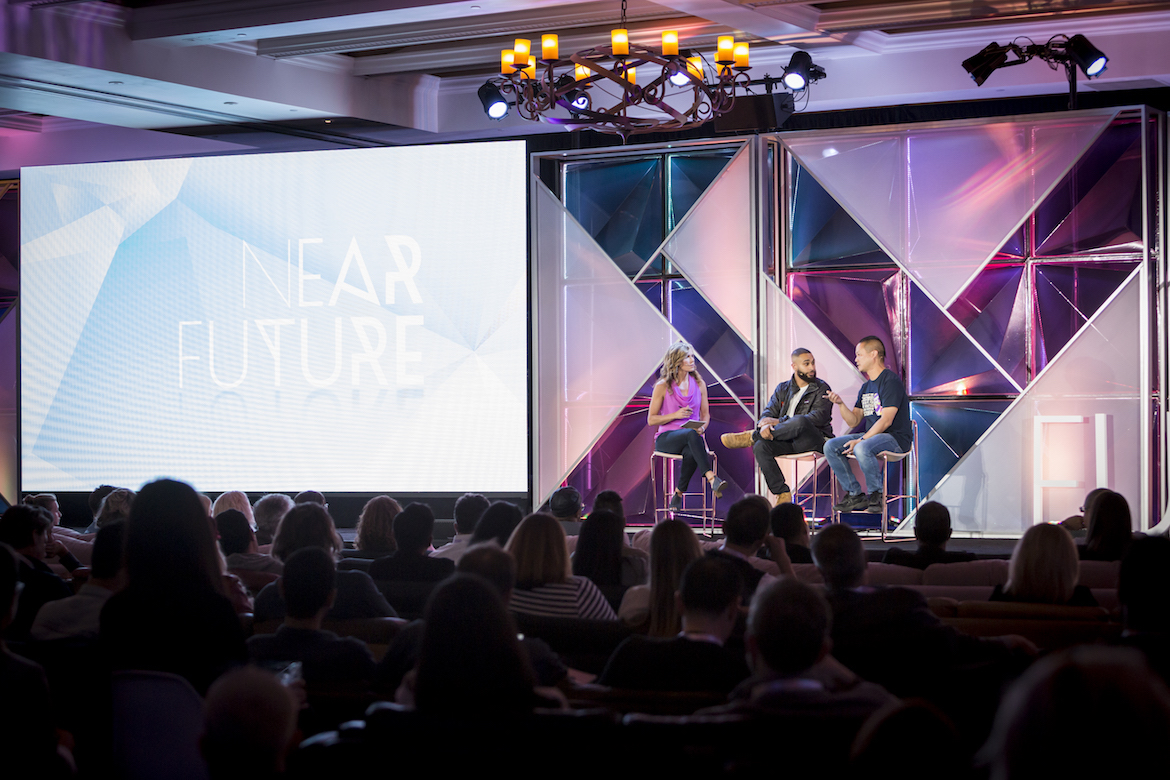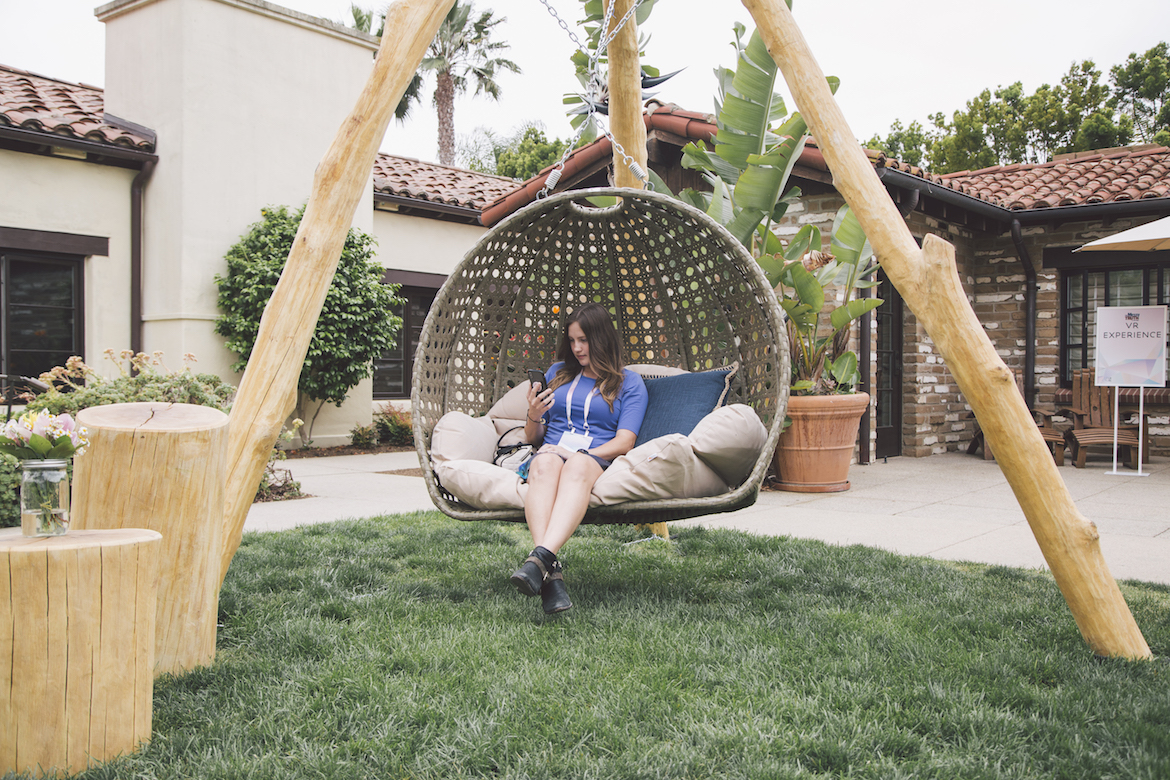
A WholeTrees Structures area at the Near Future Summit provides a place for a break and networking.
When I first learned about the Near Future Summit, it sounded like an unusual gathering in an otherwise crowded conference circuit. Taking place in La Jolla, California, the event was billed as “A carefully curated community of brilliant and concerned ass-kickers tackling serious challenges without taking ourselves too seriously.” It sounded great,but my main reason for attending was to see what solutions, and action, would come from the event. In the end, changemakers like me want to help expedite a positive future. And with issues like inequality and climate change at the fore – we can’t wait to act.
While I wasn’t quite sure what to expect, I knew their mission aligned with my work at the Autodesk Foundation, where we focus on supporting creative solutions to the world’s most pressing challenges. This includes supporting the entrepreneurs and innovators working to address the impacts of automation on the workforce. You may have already seen some of the other ways that we’re committed to helping people adapt to the future of work. So, I was eager to join like-minded “near futurists” including those taking action to create a future where workers can excel.
Our goal was to inspire this audience of more than 200 curated entrepreneurs, activists, leaders, inventors, and investors. That included people like the Governor of California, Gavin Newsom, Beyond Meat CEO Ethan Brown, and American inventor Dean Kamen. We wanted to share Autodesk’s unique point of view and deep dedication to social and environmental impact. For us, the discussion about the future of work was front and center.

Autodesk Foundation CEO Lynelle Cameron moderates a panel with Career Karma CEO Ruben Harris and Tony Hsiesh, CEO of Zappos.
Our very own Lynelle Cameron—CEO of the Autodesk Foundation and VP of Sustainability— moderated the session about “Workforce Multipliers” alongside Zappos CEO Tony Hsiesh, and Career Karma CEO Ruben Harris. The conversation focused on ways to revive and retool an increasingly squeezed workforce. Lynelle shared specifics on how Autodesk and the Foundation are addressing inequality and the skills gap. We learned how Zappos is decentralizing teams and encouraging new skill-building to add additional customer value. Harris explained how Career Karma is matching learners of all ages and backgrounds with coding skills to increase wages. It was great to observe how the summit’s focus on the role of technology and a prosperous future for all aligned so clearly with our values.
In addition to the curated conversation, we hosted an activation throughout the event with Autodesk Revit customer WholeTrees Structures. Their 10-year-old business uses 3D scanning and insights to design and construct whole timber structures from sustainably-managed forests. The Wisconsin-based company incentivizes healthy forest management by transforming forest waste into highly-valued construction material. They were another proof point that the use of automation tools is critical for designing sustainable infrastructure.

A Near Future Summit attendee enjoys the WholeTrees Structures swing.
Beyond our own specific engagements, several themes resonated with me throughout those three days:
- Technology is allowing us to live healthier and longer lives with new healthcare breakthroughs and through more mindful thinking
- There is a benefit to “maximizing local” solutions that encourage local innovation and community building
- We need to keep harnessing ideas and innovation to mitigate the effects of climate change –California Governor Gavin Newsom announced a new XPrize aimed to find solutions to detect, combat and stop the spread of wildfires
It’s my hope that we can all continue to engage in thoughtful, meaningful conversations like those we had at the Near Future Summit – the kind of encounters with optimistic people that make you want to act now to solve problems. I walked away from the experience feeling even more encouraged about what the future holds, and inspired by all the willing parties working together to make it brighter and better.